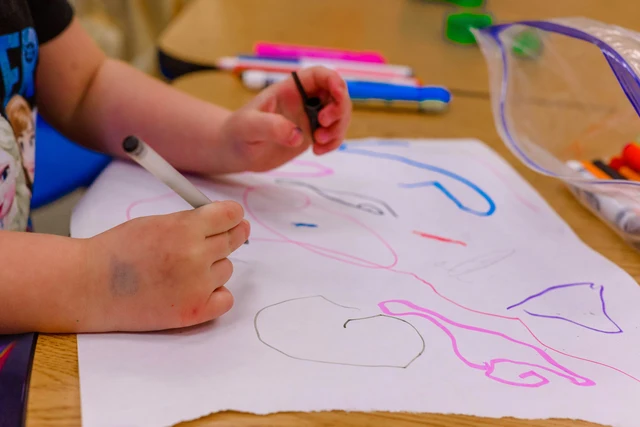Having a second Language in Early Years of a Child
At Petite Luminaries, we believe in fostering the holistic development of every child, and we see learning a second language as an essential part of that growth. Introducing a new language at an early age enhances cognitive skills, encourages creativity, and builds cultural awareness. These experiences not only broaden children’s communication abilities but also support overall brain development, equipping them with skills that benefit their future learning and social interactions.
Early exposure to a second language not only provides children with lifelong skills but also enhances brain development in ways that go beyond language acquisition. Below, we explore why learning a second language is beneficial for children in their formative years.
1. Enhanced Cognitive Development
- Improved Executive Functioning: Research shows that learning a second language improves a child’s executive functions, such as problem-solving, multitasking, and decision-making. Bilingual children often demonstrate stronger abilities in switching between tasks and filtering out distractions.
- Better Memory and Attention: Bilingual children develop a stronger working memory, which benefits them in various academic and social settings. As they learn vocabulary and rules in both languages, they enhance their capacity for retaining and retrieving information.
- Analytical Skills: When children learn a second language, they gain insight into language structure and grammar, improving their understanding of linguistic rules in both languages. This helps them analyze and understand language constructs, leading to a deeper understanding of their first language.
2. Enhanced Social Skills and Cultural Awareness
- Cultural Sensitivity: Learning a second language exposes children to other cultures and traditions, broadening their perspective on the world. Understanding different customs and values helps children develop empathy, tolerance, and respect for cultural diversity.
- Improved Communication Skills: As children practice a second language, they learn to observe, listen, and adapt to social cues. This translates into stronger overall communication skills, even within their native language, helping them build better relationships with peers and teachers.
3. Long-Term Academic Success
- Improved Literacy Skills: Learning a second language early on reinforces literacy skills across all languages. Bilingual children often perform better on reading and writing tasks and have an easier time learning additional languages later.
- Greater Achievement in Math and Science: The cognitive flexibility that comes with bilingualism helps children in areas that require analytical thinking, like math and science. Studies suggest that bilingual children may have an advantage in solving complex problems, as they are often more adaptable in their thought processes.
4. Enhanced Emotional Resilience
- Increased Confidence: When children learn to communicate in multiple languages, they gain confidence in their ability to learn and adapt. This boosts their self-esteem, making them more resilient to challenges.
- Improved Adaptability: Navigating between two languages helps children become more adaptable, a skill that will serve them throughout life. It teaches them to adjust to different settings and situations and to approach challenges with a positive mindset.
5. Lifelong Benefits for Brain Health
- Cognitive Reserve: Early bilingualism contributes to cognitive reserve, which protects against cognitive decline in older age. Bilingual individuals tend to have a delay in the onset of dementia and other age-related cognitive issues.
- Faster Information Processing: Learning a second language rewires the brain, enabling faster information processing and improving attention. Bilingual individuals tend to be better at filtering out irrelevant information, which is crucial in fast-paced learning and working environments.
6. Better Career Opportunities in the Future
- Global Job Market Readiness: In a globalized world, the demand for multilingual professionals is high. Children who grow up bilingual or multilingual are better prepared for careers that require language skills, from business to diplomacy and technology.
- Higher Earning Potential: Bilingual individuals often enjoy more job opportunities and higher earning potential, especially in careers that require cross-cultural communication and international travel.
Starting language learning early provides a host of advantages that will positively impact a child’s personal, academic, and professional life. Early bilingualism doesn’t only prepare children for an interconnected world but also equips them with the social and cognitive tools needed to thrive in all areas of life. By encouraging language learning in childhood, parents and educators are investing in a lifetime of learning, adaptability, and cultural understanding.



